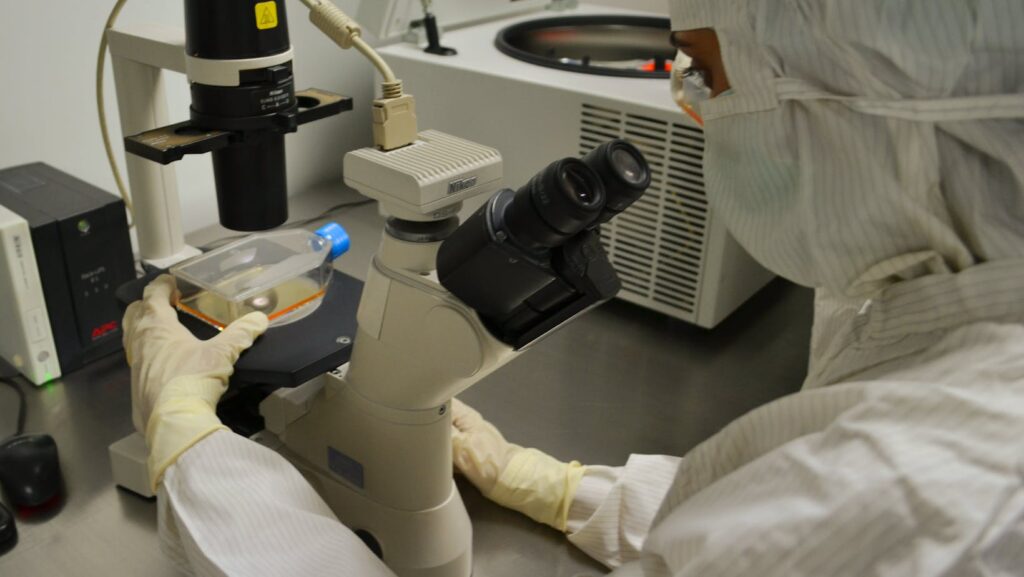
As someone deeply immersed in the world of bio tech, I’ve witnessed firsthand the exciting opportunities that this field offers. In today’s fast-paced job market, bio tech roles are at the forefront of innovation and discovery. From genetic engineering to pharmaceutical research, the demand for skilled professionals in this sector is ever-growing.
Join me as we delve into the diverse landscape of bio tech careers and uncover the endless possibilities that await those eager to make a difference in this dynamic industry.
Bio Tech Jobs
Entering the realm of bio tech jobs opens doors to a world of groundbreaking opportunities. Specializing in genetic engineering or pharmaceutical research unlocks a gateway to innovation where my skills can truly shine. Being part of this dynamic industry allows me to contribute to fields like sustainability, healthcare, and technology, making a tangible impact on society today.
Join me in exploring the vast landscape of bio tech careers, where endless possibilities await individuals ready to embrace the challenges and rewards of this exciting field.
Qualifications for Bio Tech Jobs

Entering the realm of bio tech jobs requires a solid educational foundation and specialized skills tailored to the industry’s demands. Here are the key qualifications essential for pursuing a career in bio tech:
- Educational Background: A minimum of a bachelor’s degree in relevant fields such as biology, biochemistry, biotechnology, or a related discipline is typically required for entry-level bio tech positions. Advanced roles may necessitate a master’s or doctoral degree for specialized research or leadership positions.
- Laboratory Skills: Proficiency in various laboratory techniques and methods is crucial for success in bio tech roles. Familiarity with molecular biology, cell culture, genetic sequencing, and protein purification techniques is often required to conduct experiments and analyze data effectively.
- Analytical Skills: Bio tech professionals must possess strong analytical skills to interpret complex experimental results, troubleshoot issues, and devise innovative solutions to research challenges. The ability to critically evaluate data and draw accurate conclusions is paramount in this field.
- Attention to Detail: Precision and accuracy are vital in bio tech jobs to ensure the reliability and reproducibility of experimental outcomes. Attention to detail when conducting experiments, recording observations, and maintaining records is essential for the integrity of research findings.
- Regulatory Knowledge: A fundamental understanding of regulatory requirements and compliance standards in bio tech is necessary to navigate the industry’s stringent regulations effectively. Awareness of Good Laboratory Practices (GLP) and Good Manufacturing Practices (GMP) is crucial for ensuring quality control and regulatory adherence.
By acquiring these qualifications and honing relevant skills, individuals can enhance their prospects in the competitive field of bio tech jobs, positioning themselves for success and advancement in this dynamic and innovative industry.
Types of Bio Tech Jobs

Moving on to the specifics of bio tech jobs, there are several distinct categories in this field that offer diverse opportunities for professionals with the right skills and qualifications.
- Research Scientist:
- Research scientists in the bio tech industry focus on conducting experiments, analyzing data, and developing new technologies to enhance various aspects of biological research. They play a critical role in advancing scientific knowledge and driving innovation in fields such as genetics, pharmaceuticals, and biotechnology.
- Bioprocess Engineer:
- Bioprocess engineers are responsible for designing and optimizing the processes involved in the production of biological products, such as pharmaceuticals, vaccines, and biofuels. They work on developing efficient manufacturing techniques, ensuring product quality, and scaling up production processes to meet industry demands.
- Biomedical Engineer:
- Biomedical engineers apply engineering principles to healthcare and medical sciences, working on developing medical devices, equipment, and technologies. They collaborate with healthcare professionals to design innovative solutions that improve patient care, diagnose diseases, and enhance overall healthcare outcomes.
These diverse roles within the bio tech sector offer exciting career paths for individuals with a passion for scientific research, innovation, and making a meaningful impact in fields at the forefront of technological advancement.










